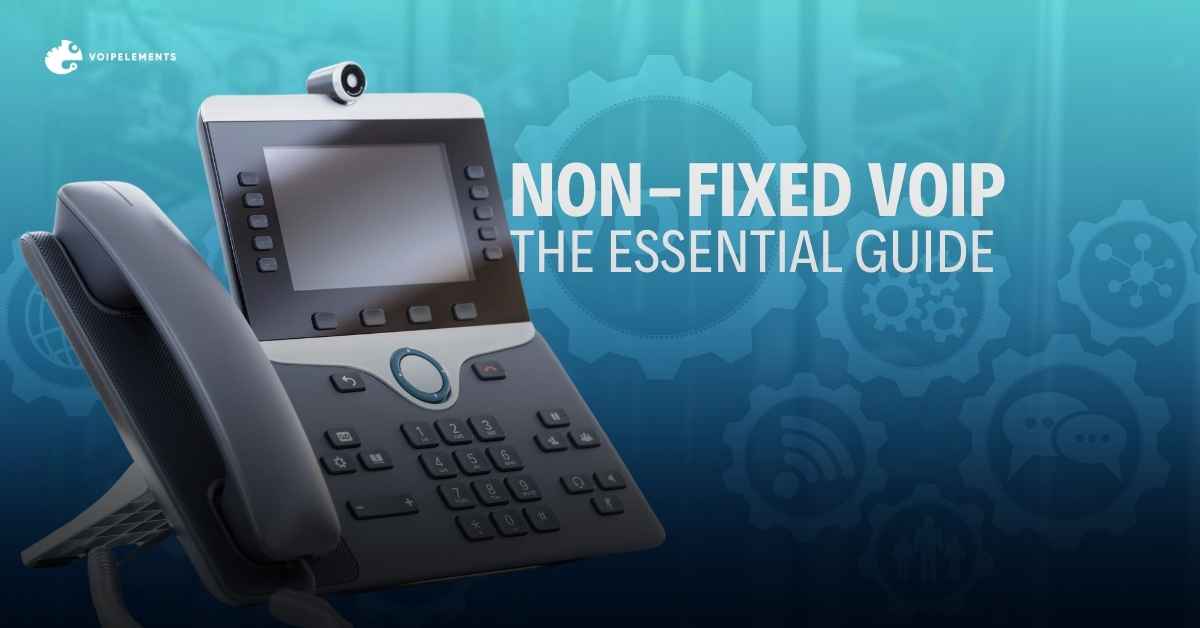A fixed VoIP number cannot be distinguished from a non-fixed VoIP number just by looking at it. VoIP (Voice over Internet Protocol) allows users to make and receive calls over the Internet from anywhere in the globe, lowering their overall phone bills.
VoIP also allows individuals and businesses to merge several communication channels, including phones, voice and electronic mail, faxes, web conferencing, and many more. And a non-fixed VoIP number isn’t geographically restricted. This unique difference between fixed and non-fixed VoIP numbers offers a level of flexibility that can be advantageous for certain use cases.
What is non-fixed VoIP?
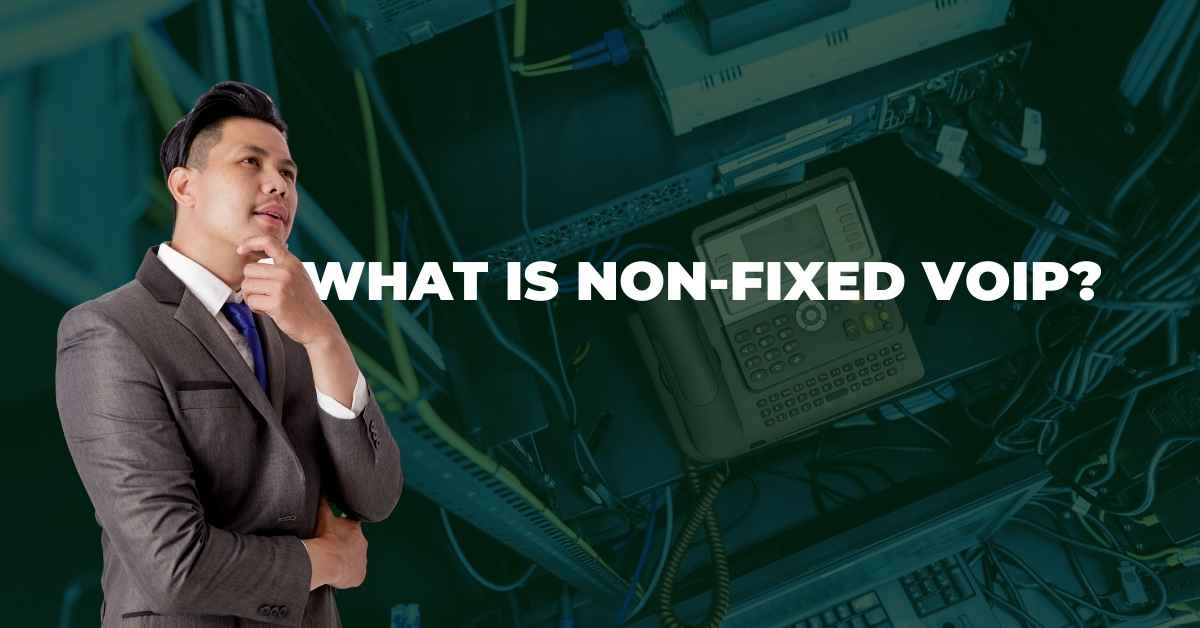
A non-fixed VoIP phone number is a virtual number assigned to a specific user, usually based on their email address, instead of a physical phone line. This means you can access your phone wherever you can log into your account. As long as you have an internet connection and a device compatible with your VoIP service provider’s app, you can make calls from your phone number.
Non-fixed VoIP numbers also allow businesses to rapidly and easily add new phone lines as their personnel grow, shrink, or relocate to work from home. These numbers are essential for giving your organization a real local presence, even if you’re not physically situated in that location.
How Does Non-fixed VoIP Work?
Non-fixed VoIP works by converting voice signals into digital data packets that are transmitted over the internet. Instead of being tied to a physical phone line, these packets travel through a cloud-based network, allowing users to make and receive phone calls from any device with internet access. The call routing process is handled by a VoIP provider, who assigns the user a virtual number that can be used worldwide.
How does non-fixed VoIP compare to fixed VoIP?
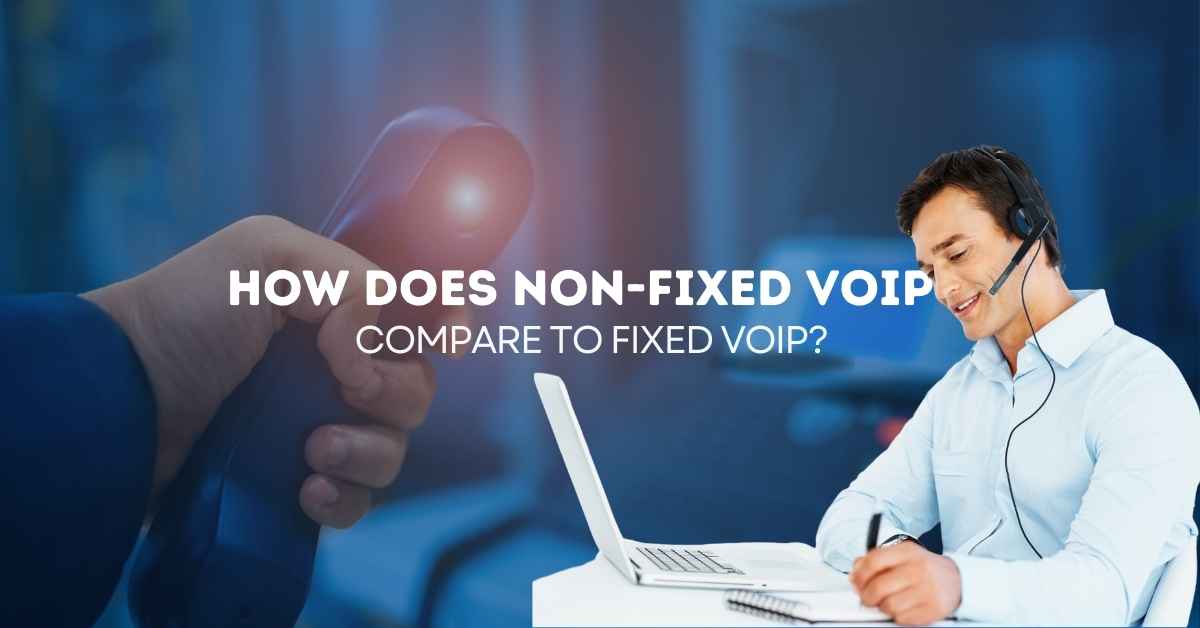
Your VoIP phone number, like a traditional landline phone, is assigned to a specific physical address via a fixed VoIP service. They frequently use the public switched telephone network, or PSTN. This means that your company requires a physical address in order to have a fixed VoIP number. Furthermore, you will only be able to use the local area codes in cities where you have a real presence, much like with traditional landlines.
The benefit of being attached to a physical address is that you can use your phone number to contact emergency services. However, for regular corporate use, fixed VoIP can be a costly headache. For example, if you’re a solopreneur in the United States and want a Canadian phone number, you’ll need to invest in an office in the Great White North, or you may simply use a non-fixed VoIP phone.
Non-fixed VoIP, unlike traditional landline phones, connects you to phone calls via the internet. Furthermore, fixed VoIP numbers are more difficult to obtain than non-fixed VoIP numbers because they are assigned a physical address. Fixed VoIP phone numbers are often considered more authentic than non-fixed VoIP phone numbers.
Fixed vs. Non-Fixed VoIP Comparison
Below is a comparison of the main features distinguishing fixed VoIP from non-fixed VoIP:
| Feature | Fixed VoIP | Non-Fixed VoIP |
| Pricing | Generally expensive | Often cheap, with some free services |
| Physical Address Requirement | Required | Not required |
| Connection to Legacy Telephone System | Necessary | Not needed |
| Ease of Acquisition | More challenging to obtain | Easy sign-up process |
| Emergency Services Access | Accessible | Not recommended for emergencies |
| Text Messaging Capability | Supported | Supported |
| VoIP Number Quality | Reliable and trusted | Less reliable, prone to misuse by scammers |
Non-fixed VoIP phone numbers
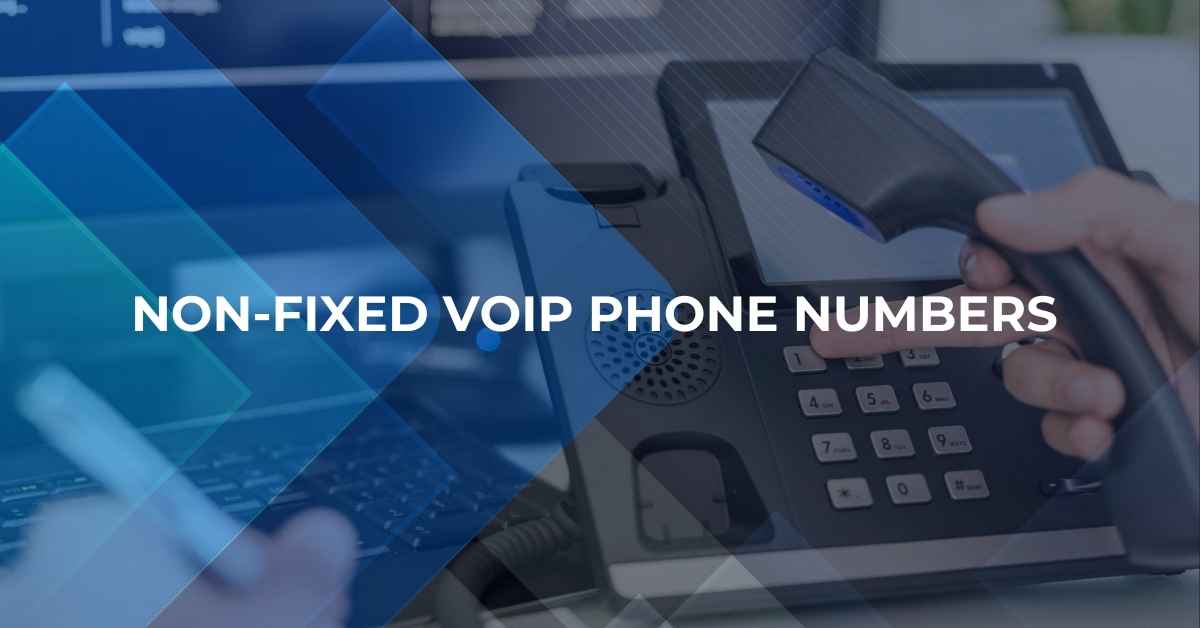
These VoIP numbers aren’t linked to a specific physical location, enabling users to make and receive calls from anywhere with an internet connection. These numbers are popular among businesses looking to expand their reach and individuals requiring privacy for their caller ID. A non-fixed VoIP number can be configured to receive or send text messages. Customers using the non-fixed VoIP number would not even know they are texting a VoIP number.
Benefits of non-fixed VoIP numbers
Remote communication
Conventional office spaces are becoming less and less common in modern businesses. Working remotely is becoming the standard; even offices-based businesses frequently employ a hybrid workforce, send workers on business trips, or provide services to clients outside of their immediate area. For remote teams with global clientele, a fixed phone solution is just too restrictive.
Simple Set-Up
The easiest kind of numbers to get are VoIP phone numbers that aren’t fixed. Creating an account and getting your first number is similar to creating an account for any other business software. The enrollment process can be finished in a matter of minutes without the need to pay for expert assistance because it does not require dealing with traditional phone lines or on-premises technology.
Create a local presence across several cities
When you’re not tied to a physical location, you can select local numbers from practically any city around the world. For instance, if you have customers in Sydney, Australia, you can opt for a local number with a 02 area code, which is recognizable and familiar to residents there. This can create a local presence and may increase the likelihood of engagement compared to calling from a number with a different, less familiar area code, such as a 03 area code from Melbourne.
As your business expands globally, the process to acquire additional local numbers from different cities or regions, like Perth (08 area code) or Brisbane (07 area code), remains straightforward. This ability to multiply your local presence can be a significant advantage in enhancing customer trust and accessibility.
It’s Cheaper
When calling foreign countries, non-fixed VoIP is less expensive. With non-fixed VoIP numbers, communicating with team members or clients located abroad costs less for your business. In a similar vein, using a fixed VoIP service to make calls between your company’s offices abroad will cost less.
Disadvantages of non-fixed VoIP numbers
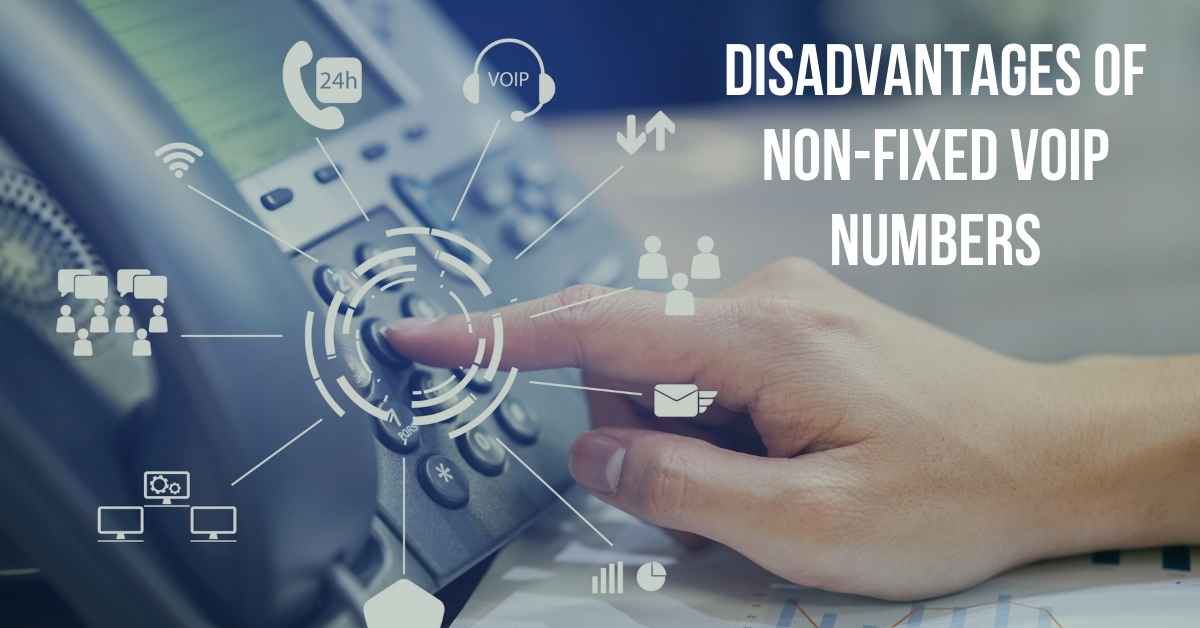
Robust Internet is Necessary
The quality of your calls using non-fixed VoIP systems is dependent on both your internet connection and power supply. You may have problems like lag, jitter, or dropped calls if you reside in an area that frequently has power outages or has sluggish internet.
Choose a VoIP company with a solid uptime record and make the finest internet connection investment you can to lessen this.
Problems with Non-Fixed VoIP for Emergency Services Dialing
You may run into restrictions when trying to contact emergency services using non-fixed VoIP. For example, you might discover that you are unable to contact Triple Zero (000), which is Australia’s main emergency service number. This restriction results from the fact that non-fixed VoIP numbers aren’t associated with a physical address. With a non-fixed VoIP number, emergency response systems are unable to route calls and dispatch assistance in an appropriate manner, as they frequently depend on location data.
Trustworthiness
Due to its use by robocalls and scammers who make use of these platforms for fraudulent behavior, non-fixed VoIP has a negative reputation. They also get such anonymity with non-fixed VoIP since it’s more difficult to track down. Even though the caller cannot discern whether a number is a non-fixed VoIP number, you should still take the necessary precautions, such as selecting local area codes for your numbers and listing them on your website or other third-party directory sites (such as Google Business). This way, if someone sees your caller ID and searches your number, they will be able to verify that it is a legitimate company.
Identifying a non-fixed VoIP number
Identifying a non-fixed VoIP number can be challenging due to its nature of not being tied to a specific physical location. Here are some indicators and methods that can help in recognizing if a number is a non-fixed VoIP:
- Lack of Geographic Consistency: Non-fixed VoIP numbers may have area codes that do not match the current location of the caller. For instance, receiving a call with a 212 area code (New York) when the caller claims to be calling from Miami could be a hint.
- Web-Based Services: Many non-fixed VoIP numbers are often issued through web-based VoIP services. Businesses or individuals using services like Skype, Google Voice, or other popular VoIP providers might be using non-fixed numbers.
- Caller ID and Verification Features: Non-fixed VoIP services often allow users to customize their caller ID, which can sometimes lead to discrepancies or oddities in the caller ID display that don’t align with standard phone number formats.
- Research and Reverse Lookup Tools: Using online tools that perform reverse phone number lookups can sometimes help determine if a number is associated with a VoIP service. These tools can provide details on whether the number is fixed or non-fixed VoIP.
- Service Provider Inquiry: For businesses, directly asking your communication service provider about the nature of the phone numbers used can clarify whether they are fixed or non-fixed VoIP numbers.
FAQ
Q. 1 Is a VoIP phone that is not fixed a cell phone?
Although it can be used on your cell phone, a non-fixed VoIP phone is not the same as a cell phone. Non-fixed VoIP phones are completely virtual phones that you can use on any device that is compatible by using apps. OpenPhone provides mobile, web, and desktop applications.
Q. 2 What is the purpose of using a non-fixed VoIP number?
With a non-fixed VoIP number, you can make and receive calls from a variety of gadgets, such as a tablet, laptop, computer, and smartphone. With only one phone number, you can now accept and send calls from any location. Do you intend to spend a few months abroad? You won’t miss any calls if you have a non-fixed VoIP number.
Bottom Line
VoIP is a more affordable and technically superior option than the conventional PSTN-based business phone system. Based on corporate use cases, both fixed and non-fixed VoIP services are appropriate. With so many VoIP service providers on the market, you must compare their benefits and drawbacks and determine which one best suits your needs as a business before selecting one.

